
The Artistic Heart of Vatican City: Vatican Pinacoteca
The Vatican Pinacoteca is an art gallery in Vatican City that houses a collection of some of the most exquisite artworks in the world. Established in 1932 by Pope Pius XI, this gallery is a treasure trove of masterpieces spanning the Renaissance, Baroque, and Medieval periods. Nestled within the Vatican Museums, the Pinacoteca offers a serene and intimate experience, allowing visitors to immerse themselves in the beauty of religious art. The gallery features works by renowned artists including Raphael, Leonardo da Vinci, Caravaggio, and Giotto. Each room is dedicated to a specific period or artist, providing a chronological journey through the evolution of Christian art. Highlights include Raphael's 'Transfiguration', Caravaggio's 'Deposition', and Leonardo da Vinci's unfinished 'St. Jerome in the Wilderness'. Walking through the Vatican Pinacoteca, you will not only witness artistic brilliance but also gain insight into the historical and cultural contexts of these magnificent pieces. The gallery is a must-visit for art lovers and cultural enthusiasts alike, offering a unique opportunity to see some of the world's most revered artworks in an unparalleled setting.
Local tips in Vatican Pinacoteca
- Visit early in the morning or late in the afternoon to avoid crowds.
- Purchase tickets to the Vatican Museums in advance to gain access to the Pinacoteca.
- Allow at least two hours to fully appreciate the collection.
- Use the audio guide for detailed information on each artwork.
- Photography is allowed without flash; bring a good camera.
- Wear comfortable shoes as there's a lot of walking involved.
The Artistic Heart of Vatican City: Vatican Pinacoteca
The Vatican Pinacoteca is an art gallery in Vatican City that houses a collection of some of the most exquisite artworks in the world. Established in 1932 by Pope Pius XI, this gallery is a treasure trove of masterpieces spanning the Renaissance, Baroque, and Medieval periods. Nestled within the Vatican Museums, the Pinacoteca offers a serene and intimate experience, allowing visitors to immerse themselves in the beauty of religious art. The gallery features works by renowned artists including Raphael, Leonardo da Vinci, Caravaggio, and Giotto. Each room is dedicated to a specific period or artist, providing a chronological journey through the evolution of Christian art. Highlights include Raphael's 'Transfiguration', Caravaggio's 'Deposition', and Leonardo da Vinci's unfinished 'St. Jerome in the Wilderness'. Walking through the Vatican Pinacoteca, you will not only witness artistic brilliance but also gain insight into the historical and cultural contexts of these magnificent pieces. The gallery is a must-visit for art lovers and cultural enthusiasts alike, offering a unique opportunity to see some of the world's most revered artworks in an unparalleled setting.
When is the best time to go to Vatican Pinacoteca?
Iconic landmarks you can’t miss
Vatican Museums
Discover the Vatican Museums, a breathtaking blend of art, history, and culture in the heart of Vatican City, showcasing masterpieces from the Renaissance and beyond.
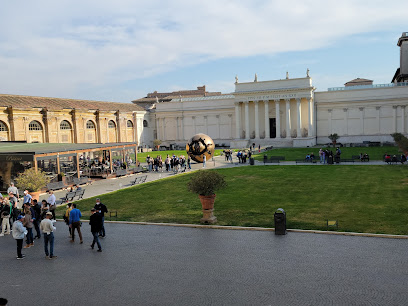
St. Peter's Basilica
Explore the grandeur of St. Peter's Basilica, a stunning symbol of faith and artistry in the heart of Vatican City.
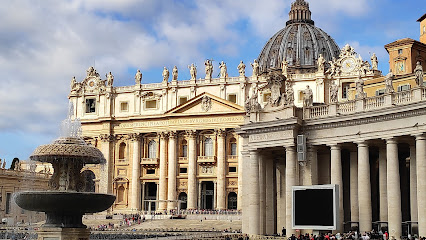
Sistine Chapel
Explore the Sistine Chapel, a divine intersection of art and faith, showcasing Michelangelo's iconic frescoes in the heart of Vatican City.
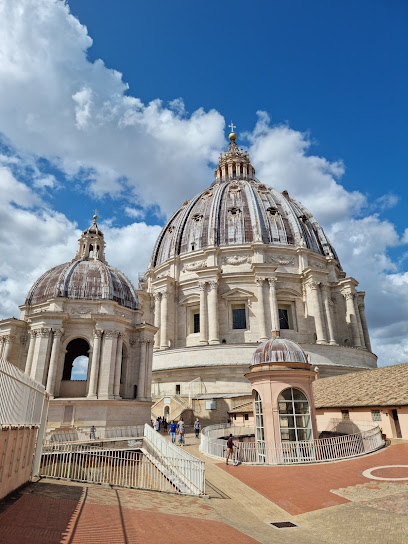
Saint Peter's Square
Explore the awe-inspiring Saint Peter's Square in Vatican City, where history, art, and spirituality converge in a breathtaking plaza.
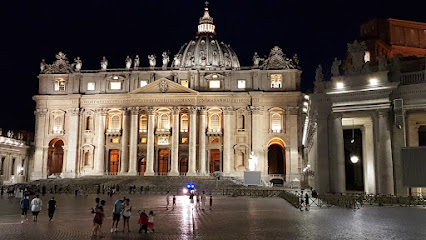
St. Peter Square Obelisk
Discover the historical grandeur of St. Peter Square Obelisk, a must-visit landmark in Vatican City that blends ancient history with spiritual significance.
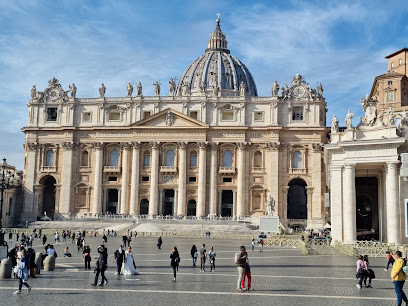
Gardens of Vatican City
Explore the serene Gardens of Vatican City, a lush oasis filled with art and history, offering a peaceful escape in the heart of Rome.
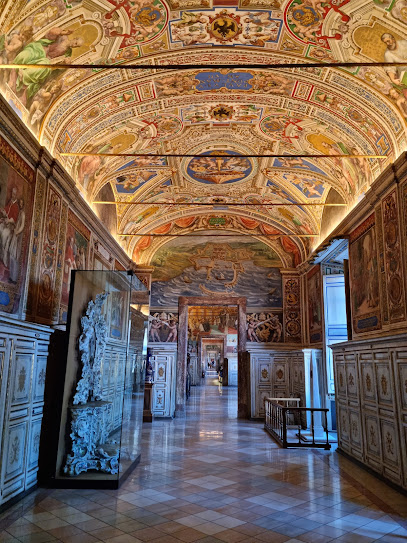
Chiesa di Sant'Anna dei Palafrenieri
Experience the tranquil beauty and rich history of Chiesa di Sant'Anna dei Palafrenieri in Vatican City, a must-see spiritual landmark.
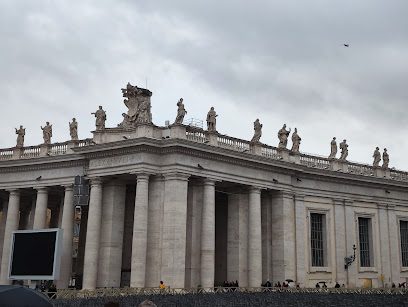
Paul VI Hall
Explore the architectural wonder of Paul VI Hall in Vatican City, where spirituality meets modern design in an iconic auditorium.
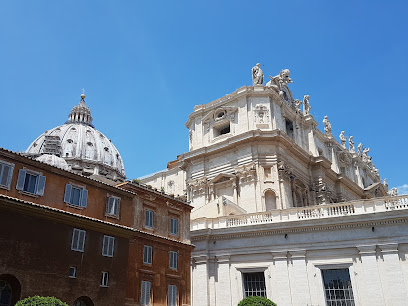
Apostolic Palace
Discover the awe-inspiring Apostolic Palace in Vatican City, a historical landmark brimming with rich art, architecture, and spiritual significance.
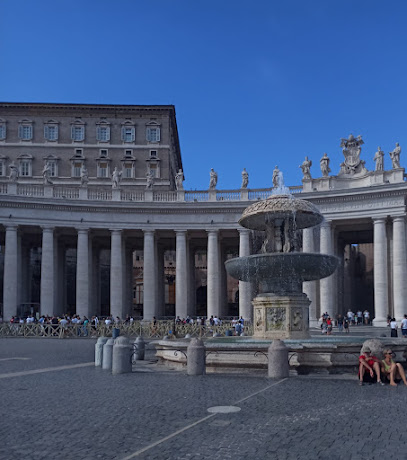
Vatican Necropolis
Discover the Vatican Necropolis, an ancient burial site beneath St. Peter's Basilica, revealing the roots of early Christianity and its rich history.
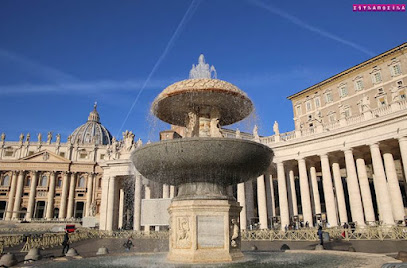
Pine Courtyard
Discover tranquility at Pine Courtyard, Vatican City's serene garden, where lush greenery meets rich history for an unforgettable experience.
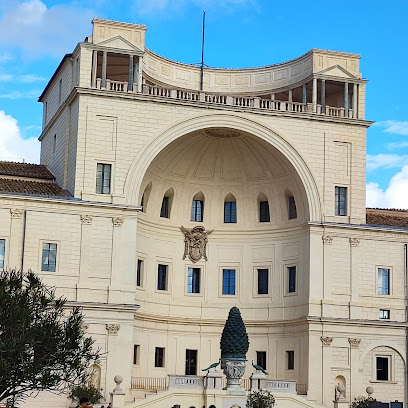
Crown Tours
Experience the magic of Rome with Crown Tours, offering expertly guided sightseeing tours for an unforgettable journey through history and culture.
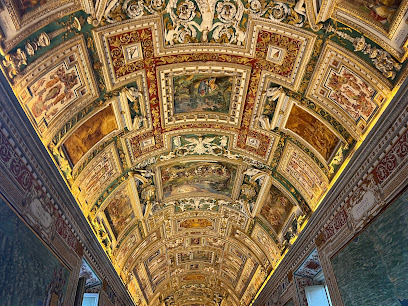
Touristation Vaticano
Experience the rich history and artistry of the Vatican with expert-guided tours from Touristation Vaticano, your gateway to Rome's sacred treasures.
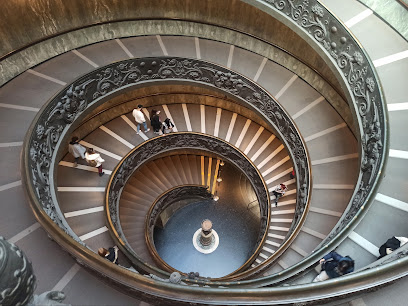
Paintings Gallery of the Vatican Museums
Explore the Paintings Gallery of the Vatican Museums, home to masterpieces by Raphael and Caravaggio, and experience Italy's rich artistic heritage.
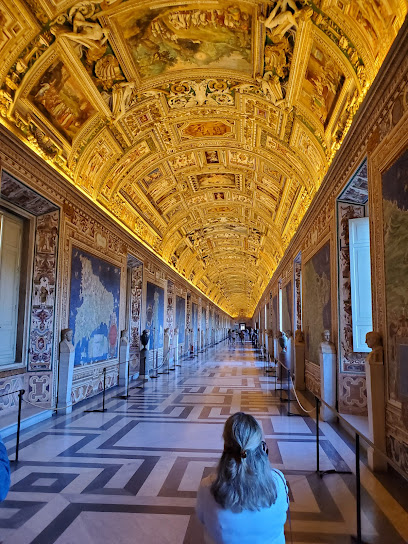
Bernini Fountain
Discover the breathtaking Bernini Fountain in Vatican City, a masterpiece of Baroque art surrounded by historical significance and beauty.
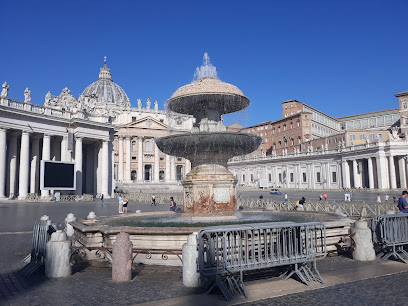
Unmissable attractions to see
Trevi Fountain
Discover the enchanting Trevi Fountain in Rome, where beauty, romance, and history converge in a spectacular display of art and tradition.
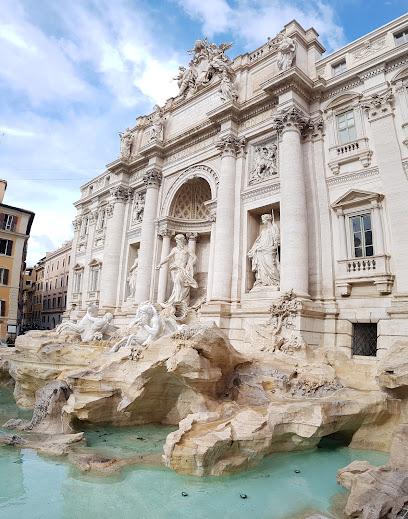
Colosseum
Explore the iconic Colosseum in Rome, a historical landmark that speaks volumes of the grandeur and glory of ancient Roman civilization.
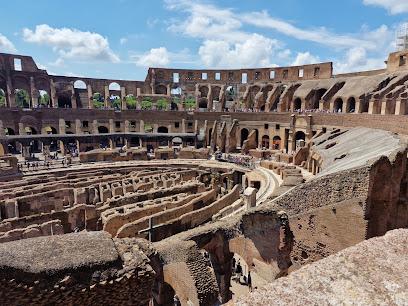
Pantheon
Discover the architectural wonder of the Pantheon in Rome, a historical landmark that melds ancient beauty with the lively spirit of modern Italy.
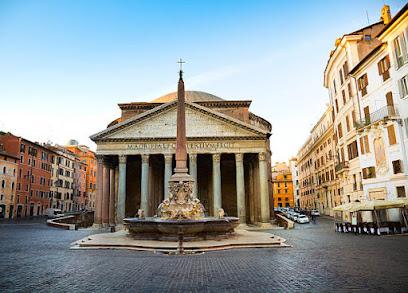
Vatican Museums
Explore the Vatican Museums, home to timeless masterpieces and a rich tapestry of art and history in the heart of Vatican City.

St. Peter's Basilica
Explore the breathtaking St. Peter's Basilica in Vatican City, a masterpiece of Renaissance architecture and a pivotal site of Catholic pilgrimage.
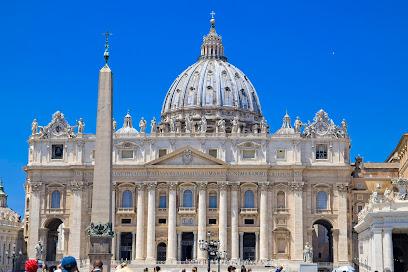
Roman Forum
Discover the rich history of the Roman Forum, an ancient open-air museum that showcases the heart of Rome's political and social life.
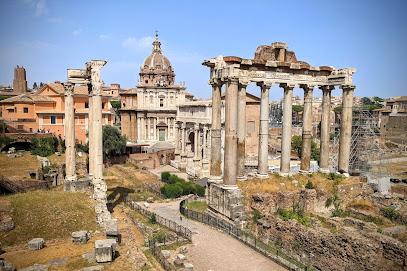
Castel Sant'Angelo
Discover the rich history and breathtaking views at Castel Sant'Angelo, Rome's iconic fortress and museum, where every corner tells a story.
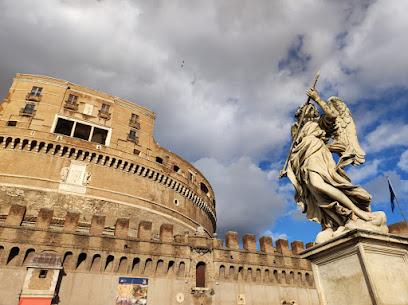
Sistine Chapel
Explore the breathtaking Sistine Chapel in Vatican City, home to Michelangelo's masterpieces and a significant site of Catholic heritage.
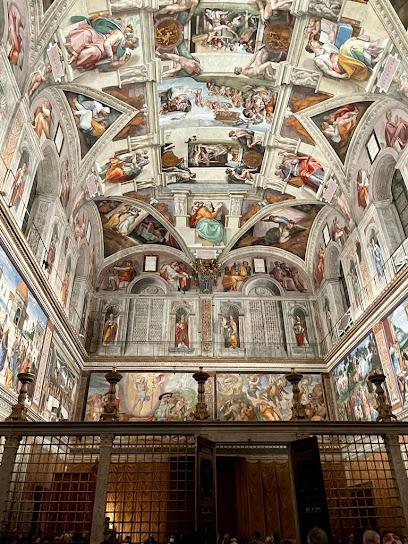
Villa Borghese
Explore Villa Borghese: Rome's iconic park offering lush gardens, renowned museums, and stunning views in the heart of the city.
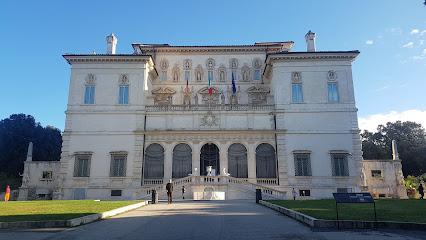
Circus Maximus
Discover Circus Maximus, the ancient Roman stadium where history, architecture, and stunning surroundings converge in the heart of Rome.
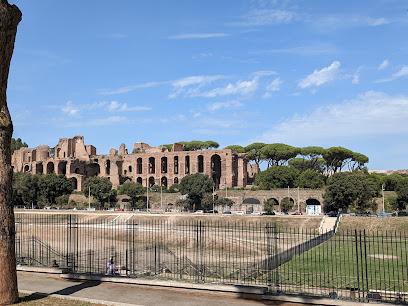
Papal Basilica of Saint Mary Major
Explore the stunning Papal Basilica of Saint Mary Major, a masterpiece of architecture and a pivotal landmark in the heart of Rome's spiritual heritage.
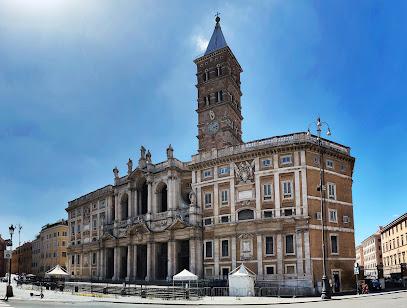
Largo di Torre Argentina
Explore the ancient ruins of Largo di Torre Argentina, a historical gem in the heart of Rome showcasing temples and the legacy of Julius Caesar.

Villa d'Este
Explore the enchanting Villa d'Este in Tivoli, a UNESCO World Heritage site featuring stunning gardens, fountains, and Renaissance architecture.
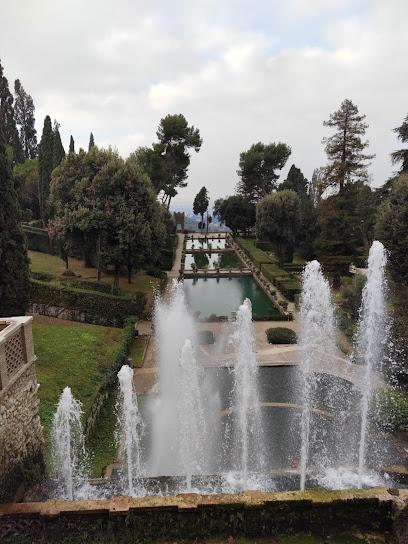
Stadio Olimpico
Experience the vibrant sports culture and rich history of Rome at Stadio Olimpico, an iconic venue for football, athletics, and unforgettable concerts.
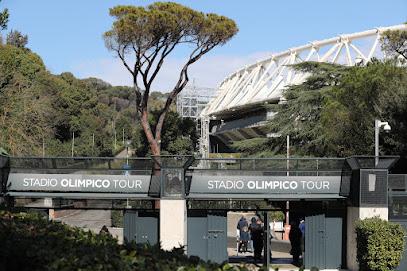
Basilica of San Giovanni in Laterano
Discover the splendor of the Basilica of San Giovanni in Laterano, Rome's oldest basilica rich in history and artistry, a must-visit for every traveler.
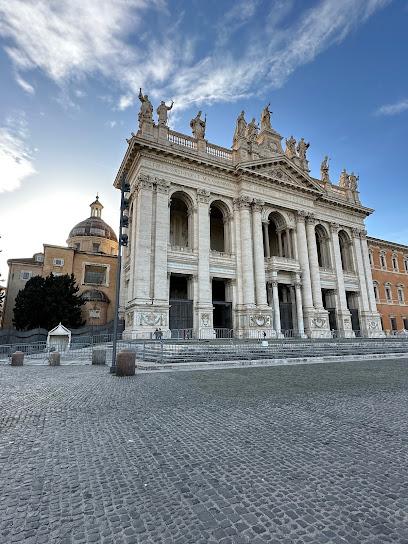
Essential places to dine
Ristorante dei Musei
Discover authentic Italian flavors at Ristorante dei Musei, where delectable pizzas meet Roman hospitality in a charming atmosphere.
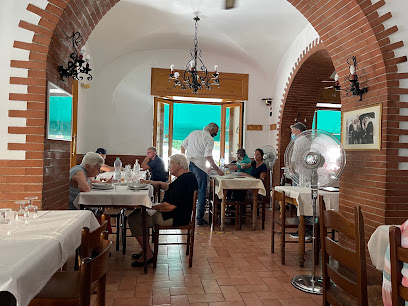
Caffè Delle Commari
Experience authentic Italian coffee and exquisite cocktails at Caffè Delle Commari in Rome—your perfect retreat in the Eternal City.
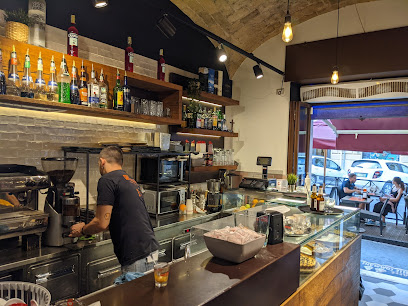
La Soffitta Renovatio
Discover authentic Italian cuisine at La Soffitta Renovatio, where every bite is a journey through Italy's culinary heritage.
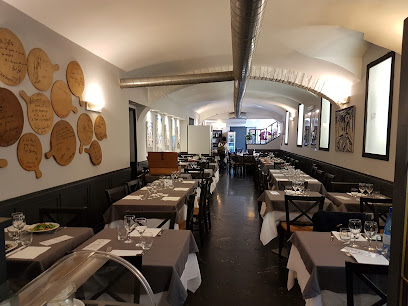
Borghiciana Pastificio Artigianale
Experience authentic Roman cuisine at Borghiciana Pastificio Artigianale - where tradition meets flavor in every dish.
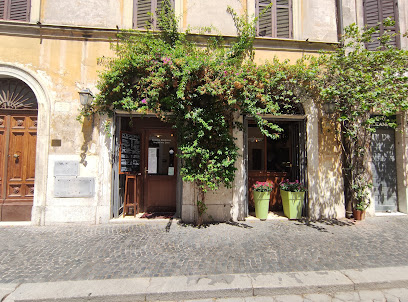
Ristorante Arlù
Experience authentic Italian cuisine at Ristorante Arlù in Rome—where tradition meets taste in an inviting atmosphere.
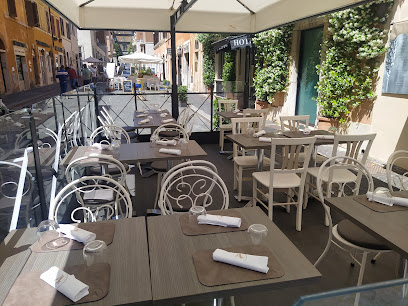
Forno Feliziani
Experience authentic Italian pizza at Forno Feliziani in Rome—where tradition meets taste in every delicious slice.
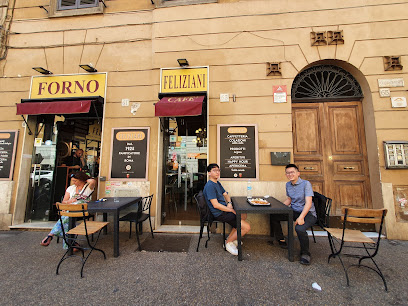
La Locanda di Pietro
Experience authentic Italian cuisine at La Locanda di Pietro in Rome—where every meal is a celebration of flavor and tradition.
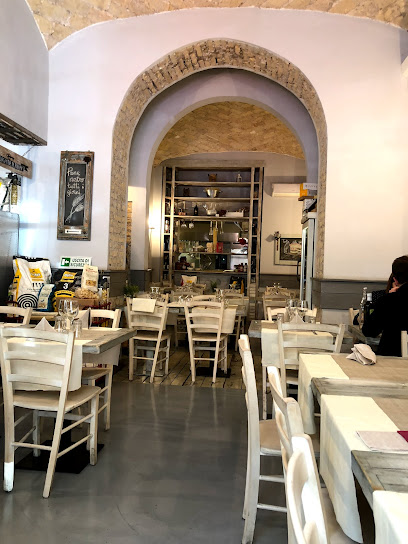
Spaghetti
Experience authentic Italian cuisine at Spaghetti in Rome – where tradition meets flavor in every delicious dish.
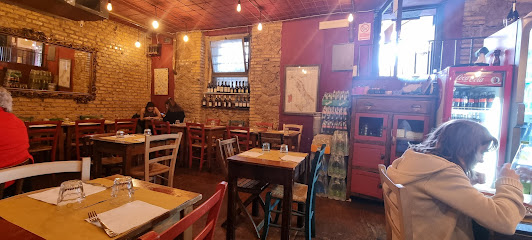
Ristorante Da Paolo
Experience authentic Italian flavors at Ristorante Da Paolo near Vatican City - where tradition meets culinary excellence.
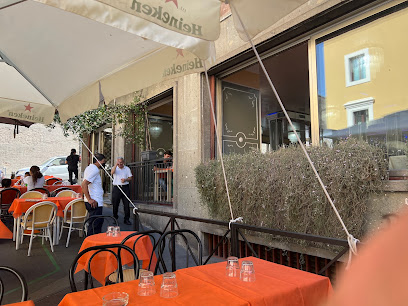
Trattoria Pizzeria Gli Archi
Indulge in authentic Italian flavors at Trattoria Pizzeria Gli Archi, where every dish tells a story of tradition and passion.
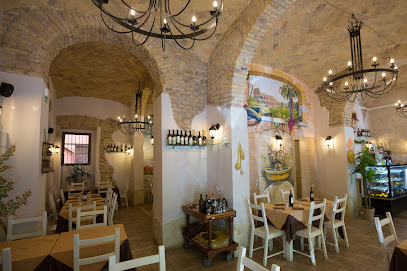
Trattoria Vaticano Giggi
Experience authentic Roman cuisine at Trattoria Vaticano Giggi - where every meal is a celebration of Italy's culinary heritage.
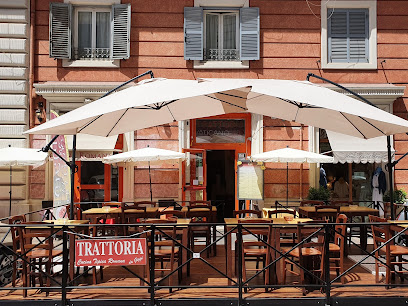
Vinsanto Vino & Cucina
Experience authentic Italian cuisine at Vinsanto Vino & Cucina in Rome - where every meal tells a story.
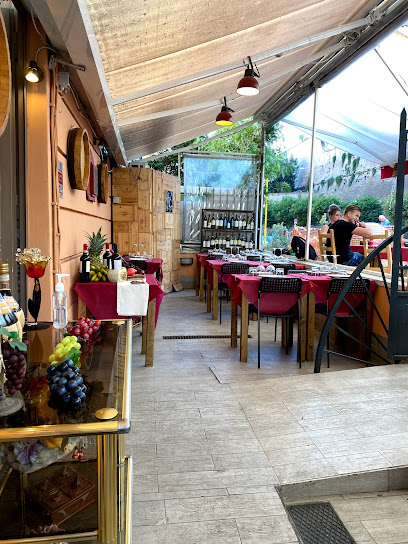
Osteria delle Commari
Experience authentic Italian cuisine at Osteria delle Commari in Rome - a haven for food lovers seeking gluten-free options and exquisite Mediterranean flavors.
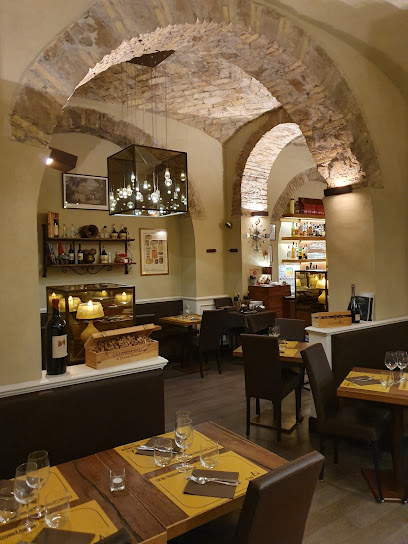
Taverna Lino
Discover authentic Italian flavors at Taverna Lino in Rome - where every bite transports you to Italy's culinary heart.
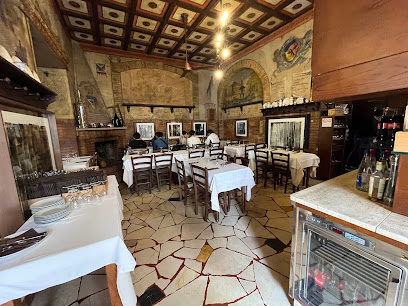
Ristorante Cantina 26
Experience authentic Italian flavors at Ristorante Cantina 26 in Rome—where seafood meets vegan delights in a cozy ambiance.
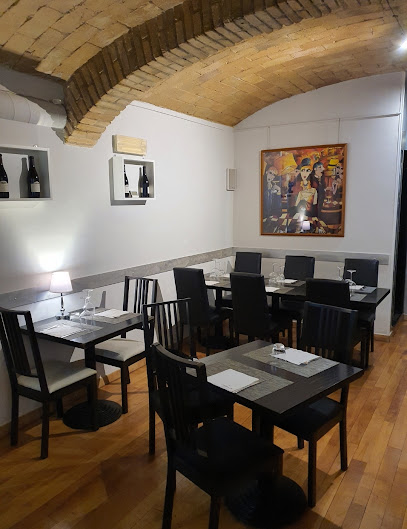
Markets, malls and hidden boutiques
Old Bridge Gelateria
Savor the rich and authentic flavors of gelato at Old Bridge Gelateria, a must-visit ice cream shop in the heart of Rome, Italy.
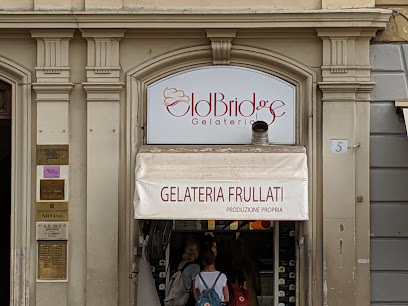
Caffè Delle Commari
Caffè Delle Commari: Experience the authentic taste of Italy with exquisite coffee, dishes, and cocktails in a charming Roman setting.
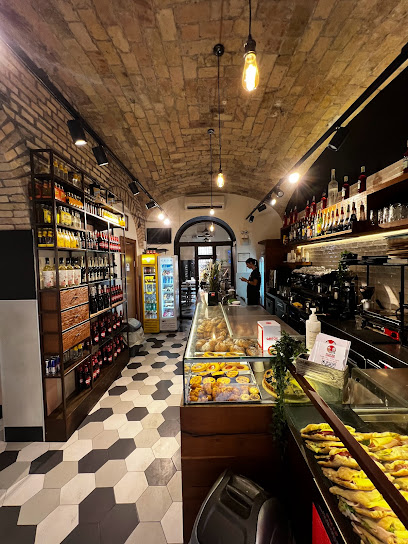
Flying Tiger Copenhagen
Explore Flying Tiger Copenhagen in Rome for quirky gifts, unique souvenirs, and playful home goods - a must-visit for all travelers!
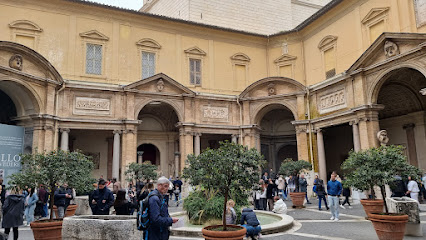
Foot Locker
Explore Foot Locker in Rome for the latest sneaker trends and stylish sportswear, right in the heart of the Eternal City.

Paintings Gallery of the Vatican Museums
Discover the artistic legacy of the Vatican Museums' Paintings Gallery, featuring masterpieces that define the essence of art through the ages.
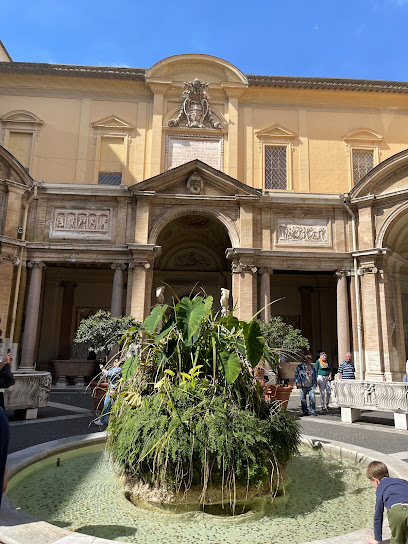
Vatican Pharmacy
Discover the Vatican Pharmacy: A unique blend of health, wellness, and cultural treasures in the heart of Vatican City.
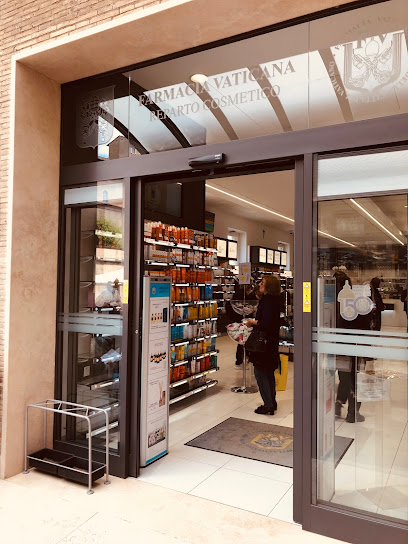
Annona Vatican City
Experience the flavors of Italy at Annona, Vatican City's charming grocery store offering local produce and authentic culinary delights.
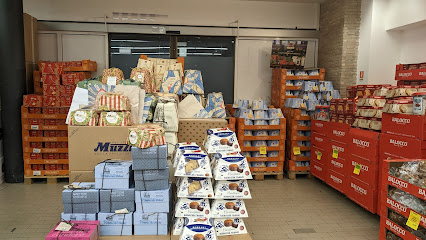
Savelli Religious (Savelli Art and Tradition)
Explore Savelli Religious in Rome for unique religious artifacts, exquisite jewelry, and thoughtful gifts that capture the essence of Italian spirituality.
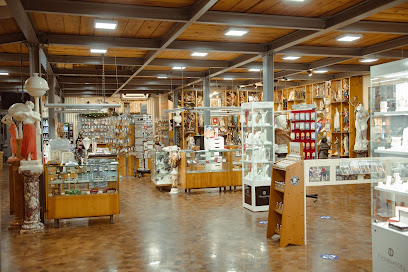
Gallery of Maps
Discover Italy's rich cartographic history at the stunning Gallery of Maps in Vatican City, a must-visit for art and history enthusiasts.
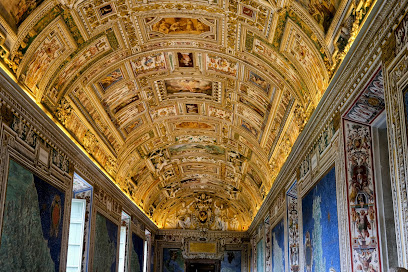
Mondo Cattolico
Discover Mondo Cattolico, Vatican City's premier destination for religious goods and unique souvenirs, capturing the essence of faith and culture.
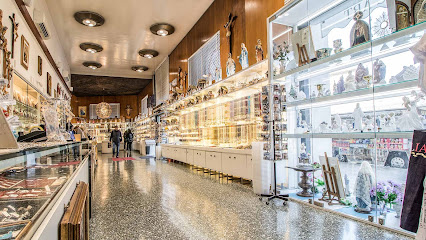
St. Peter's Gallery
Discover a unique blend of souvenirs and coffee at St. Peter's Gallery, your go-to shop near Vatican City for memorable gifts and a relaxing break.
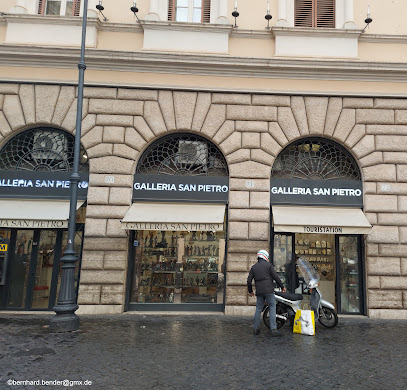
Vatican Emporium - Religious Articles & Gifts
Explore the Vatican Emporium, your go-to destination for authentic religious articles and gifts that embody the spirit of Rome.
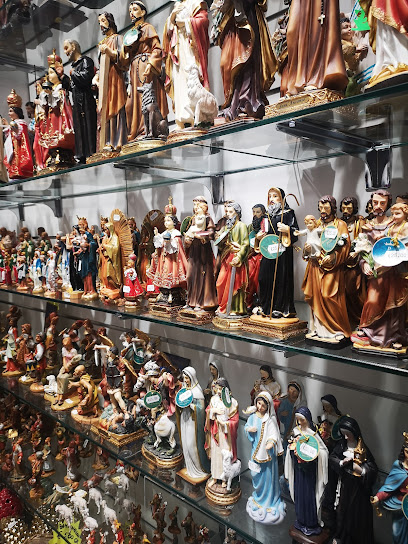
Domus Artis
Explore Domus Artis in Rome for a unique blend of art, culture, and exquisite local craftsmanship, perfect for souvenirs and gifts.
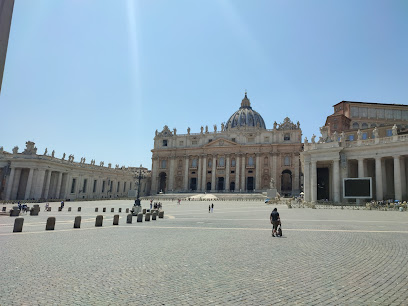
La Caffeteria
Discover the cozy charm of La Caffeteria, a must-visit coffee shop in Rome offering exquisite brews and delightful pastries in a warm atmosphere.
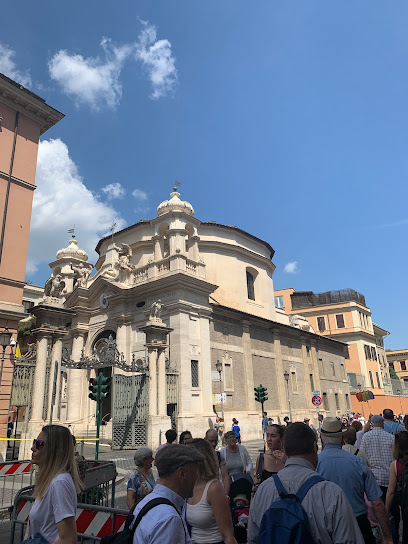
Tourist Information Office
Discover the Tourist Information Office in Vatican City - your gateway for souvenirs and essential travel information in the heart of history.
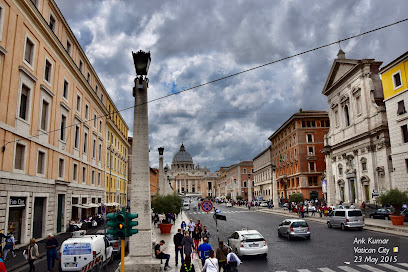
Essential bars & hidden hideouts
Caffè Delle Commari
Discover the authentic Italian café experience at Caffè Delle Commari in Rome, where rich flavors and a charming atmosphere await.
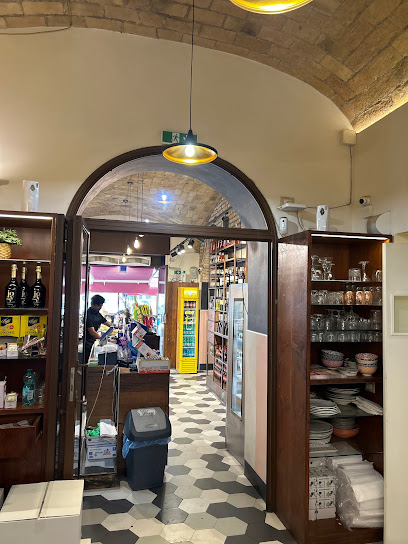
Be.Re. + Trapizzino
Discover the flavors of Rome at Be.Re. + Trapizzino, where tradition meets innovation in a lively gastropub setting.
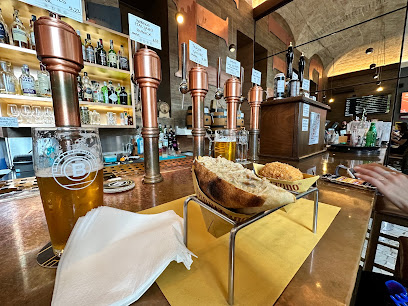
Wine Bar De' Penitenzieri
Discover the essence of Italy at Wine Bar De' Penitenzieri, where exquisite wines meet cozy ambiance in the heart of Rome.
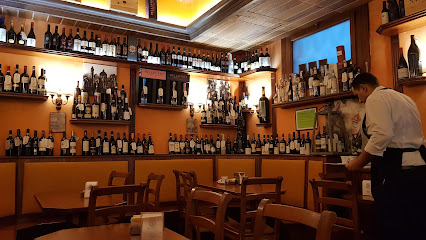
Caffè Vaticano
Experience the essence of Roman coffee culture at Caffè Vaticano, where every cup tells a story of tradition and flavor in the heart of the Eternal City.
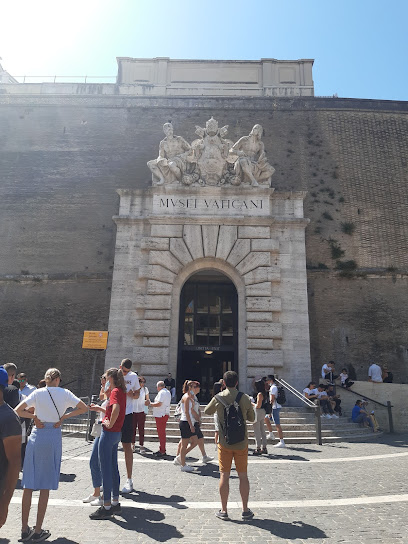
Bar Novecentotredici
Experience the essence of Italian café culture at Bar Novecentotredici, where exquisite coffee, cocktails, and pastries await in the heart of Rome.
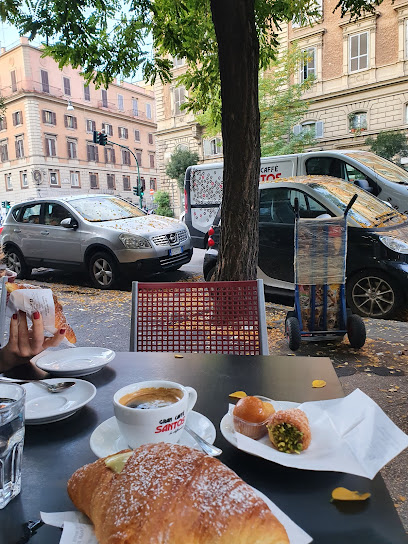
Cafe San Pietro
Experience the authentic flavors of Italy at Café San Pietro, a charming café in the heart of Rome, perfect for coffee lovers and pastry enthusiasts alike.
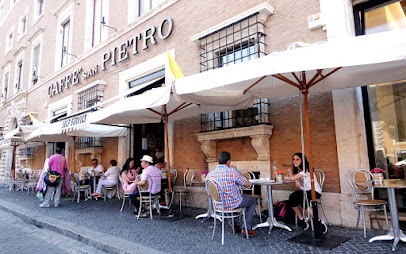
Saxophone Live Pub
Experience the heart of Rome's nightlife at Saxophone Live Pub, where live jazz meets an inviting atmosphere and diverse drink selections.
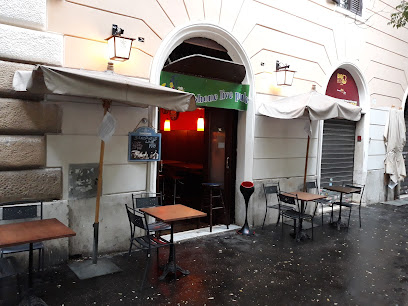
Birreria Martini Esperienza Tedesca
Discover the heart of Germany in Rome at Birreria Martini, where authentic cuisine and vibrant beer culture come together for an unforgettable experience.
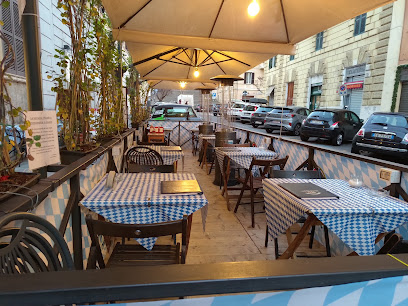
Giuly's Café
Discover the authentic taste of Italy at Giuly's Café, a charming bar and restaurant in Rome offering delightful cuisine and warm hospitality.
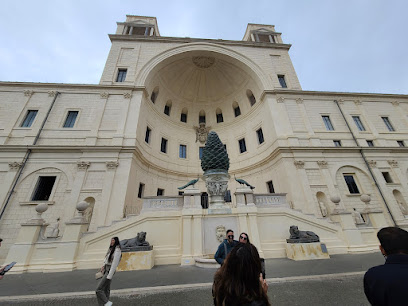
Bar Latteria Giuliani
Discover the authentic taste of Rome at Bar Latteria Giuliani, where every sip and bite tells a story in the heart of the Eternal City.
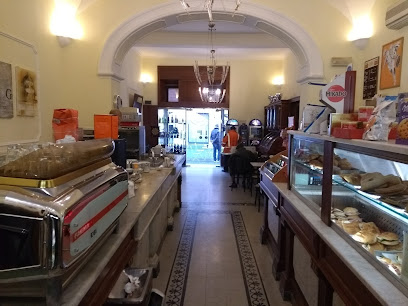
Derry Rock Pub
Experience the warmth of Irish hospitality with cocktails and live music at Derry Rock Pub, a lively hotspot for tourists in Rome.
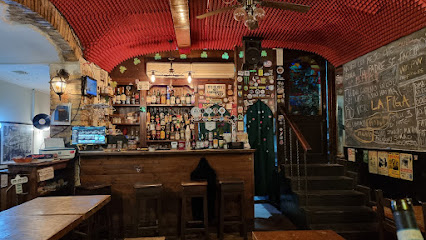
Caffè Leonina
Discover the vibrant atmosphere and authentic flavors at Caffè Leonina, your charming bar in the heart of Rome's historical piazza.
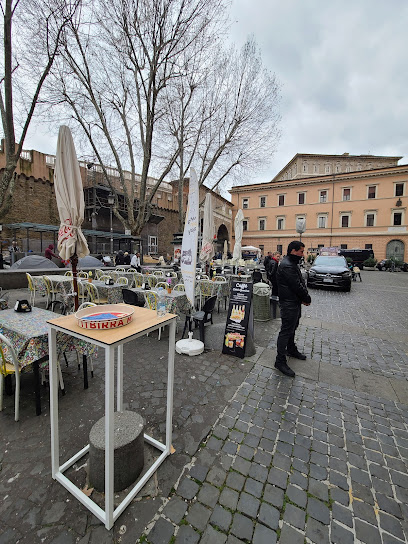
Bar Delle Grazie
Discover Bar Delle Grazie, a cozy Roman bar offering delightful coffee and pastries, perfect for a relaxing break in the heart of the city.
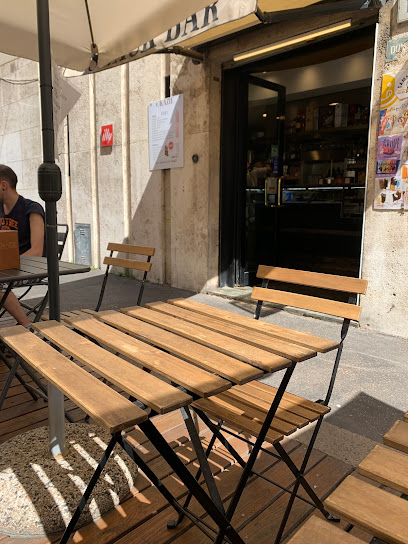
EXPRESSODRG
Discover EXPRESSODRG in Rome: a delightful cafe and bar & grill offering a taste of authentic Italian cuisine in a cozy atmosphere.
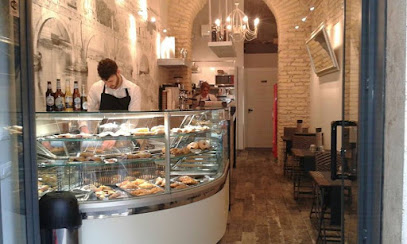
Bar Angeli
Discover delicious grilled dishes and a warm atmosphere at Bar Angeli, the perfect spot for tourists in Rome seeking authentic Italian flavors.
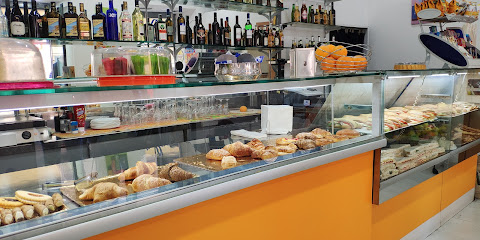
Travel experiences inspired by this city
Explore more travel diariesLocal Phrases
-
- HelloSalve
[sahl-veh] - GoodbyeAddio
[ahd-dee-oh] - YesSì
[see] - NoNo
[noh] - Please/You're welcomePer favore
[pehr fah-voh-reh] - Thank youGrazie
[graht-zee-eh] - Excuse me/SorryMi scusi
[mee skoo-zee] - How are you?Come stai?
[koh-meh stah-ee] - Fine. And you?Bene. E tu?
[beh-neh. eh too] - Do you speak English?Parli inglese?
[pahr-lee een-gleh-zeh] - I don't understandNon capisco
[nohn kah-pee-skoh]
- HelloSalve
-
- I'd like to see the menu, pleaseMi piacerebbe vedere il menu, per favore
[mee pyah-cheh-reh-beh veh-deh-reh eel meh-noo, pehr fah-voh-reh] - I don't eat meatNon mangio carne
[nohn mahn-joh kahr-neh] - Cheers!Salute!
[sah-loo-teh] - I would like to pay, pleaseVorrei pagare, per favore
[vohr-reh-ee pah-gah-reh, pehr fah-voh-reh]
- I'd like to see the menu, pleaseMi piacerebbe vedere il menu, per favore
-
- Help!Aiuto!
[ah-yoo-toh] - Go away!Vai via!
[vah-ee vee-ah] - Call the Police!Chiamate la polizia!
[kyah-mah-teh lah poh-lee-ts-yah] - Call a doctor!Chiamate un medico!
[kyah-mah-teh oon meh-dee-koh] - I'm lostMi sono perso
[mee soh-noh pehr-soh] - I'm illSto male
[stoh mah-leh]
- Help!Aiuto!
-
- I'd like to buy...Vorrei comprare...
[vohr-reh-ee kohm-prah-reh] - I'm just lookingSto solo guardando
[stoh soh-loh gwahr-dahn-doh] - How much is it?Quanto costa?
[kwahn-toh koh-stah] - That's too expensiveÈ troppo caro
[eh trohp-poh kah-roh] - Can you lower the price?Puoi abbassare il prezzo?
[pwah-ee ahb-bahs-sah-reh eel preh-tsoh]
- I'd like to buy...Vorrei comprare...
-
- What time is it?Che ora è?
[keh oh-rah eh] - It's one o'clockÈ l'una
[eh loo-nah] - Half past (10)Sono le dieci e mezza
[soh-noh leh dyeh-chee eh meh-tsah] - MorningMattina
[maht-tee-nah] - AfternoonPomeriggio
[poh-meh-ree-joh] - EveningSera
[seh-rah] - YesterdayIeri
[ee-eh-ree] - TodayOggi
[oh-jee] - TomorrowDomani
[doh-mah-nee] - 1Uno
[oo-noh] - 2Due
[doo-eh] - 3Tre
[treh] - 4Quattro
[kwah-troh] - 5Cinque
[cheen-kweh] - 6Sei
[say] - 7Sette
[seht-teh] - 8Otto
[oh-toh] - 9Nove
[noh-veh] - 10Dieci
[dyeh-chee]
- What time is it?Che ora è?
-
- Where's a/the...?Dov'è...?
[doh-veh] - What's the address?Qual è l'indirizzo?
[kwahl eh leen-dee-reet-soh] - Can you show me (on the map)?Puoi mostrarmi (sulla mappa)?
[pwah-ee mohs-trahr-mee sool-lah mahp-pah] - When's the next (bus)?Quando passa il prossimo (autobus)?
[kwahn-doh pahs-sah eel prohs-see-moh ow-toh-boos] - A ticket (to ....)Un biglietto (per ....)
[oon bee-lyet-toh pehr]
- Where's a/the...?Dov'è...?
History of Vatican Pinacoteca
-
The Vatican Pinacoteca was established in 1932 under the direction of Pope Pius XI. It was created to house and display the extensive collection of paintings accumulated by the Vatican over centuries. The gallery was specifically designed to provide a suitable environment for the preservation and appreciation of these masterpieces.
-
The building housing the Vatican Pinacoteca was designed by the Italian architect Luca Beltrami. He aimed to create a space that would reflect the importance and grandeur of the art it contained, while also ensuring optimal conditions for the preservation of the artworks. The design incorporates classical elements and modern techniques, representing a blend of the old and the new.
-
The Vatican Pinacoteca features works from some of the most renowned artists in history, including Raphael, Leonardo da Vinci, Caravaggio, and Giotto. Notable pieces include Raphael's 'Transfiguration', Leonardo da Vinci's 'St. Jerome in the Wilderness', and Caravaggio's 'Entombment of Christ'. Each painting tells a story and contributes to the rich tapestry of religious and artistic history.
-
During World War II, the Vatican Pinacoteca, like many cultural institutions in Europe, faced the threat of damage and loss. To protect the invaluable collection, many of the artworks were moved to safer locations within the Vatican. The Pinacoteca itself suffered minimal damage, and the artworks were returned to their original places after the war.
-
In recent decades, the Vatican Pinacoteca has undergone several renovations and updates to improve the visitor experience and ensure the continued preservation of its collections. These developments include the installation of advanced climate control systems, updated lighting, and enhanced security measures. The gallery continues to be a vital part of the Vatican Museums, attracting millions of visitors each year.
-
The Vatican Pinacoteca has had a profound impact on both religious and artistic communities. It serves as a testament to the Church's role as a patron of the arts and its commitment to preserving cultural heritage. The collection offers a unique opportunity to explore the intersection of faith, history, and art, providing insight into the spiritual and aesthetic values that have shaped Western civilization.
Vatican Pinacoteca Essentials
-
The Vatican Pinacoteca is located within the Vatican Museums in Vatican City. The nearest airport is Rome's Leonardo da Vinci-Fiumicino Airport, approximately 30 kilometers away. From the airport, you can take a train to Termini Station in Rome and then transfer to the Metro Line A, getting off at Ottaviano-San Pietro station. From there, it's a short walk to the entrance of the Vatican Museums. Alternatively, you can take a taxi directly from the airport to Vatican City.
-
Rome's public transport system is efficient and includes buses, trams, and the Metro. The Metro Line A serves the Vatican City area. Buses 49, 32, 81, and 982 also stop near the Vatican Museums. Taxis and ride-sharing services like Uber are available as well. It's advisable to purchase a Roma Pass for unlimited rides on public transport and discounts on museum entries.
-
The official currency in Vatican City is the Euro (EUR). Credit cards are widely accepted in the Vatican Museums and surrounding areas. However, it is recommended to carry some cash for smaller purchases or in case of technical issues with card payments. ATMs are available near the entrance of the Vatican Museums and in nearby areas.
-
Vatican City is generally very safe for tourists. However, pickpocketing can occur in crowded areas, especially near the entrance to the Vatican Museums and St. Peter's Square. Be vigilant, keep an eye on your belongings, and avoid displaying valuables. Avoid wandering alone at night in poorly lit areas and stick to well-populated places.
-
In case of an emergency, dial 112 for immediate assistance. Vatican City has its own police force, the Corps of Gendarmerie of Vatican City, which works in collaboration with the Italian police. For medical emergencies, the Santo Spirito Hospital is the nearest facility, located just across the Tiber River. It's advisable to have travel insurance that covers medical emergencies.
-
Fashion: Do dress modestly. Shoulders and knees should be covered when visiting religious sites. Avoid wearing shorts, miniskirts, or sleeveless tops. Religion: Do respect the sanctity of religious sites. Refrain from loud conversations and photography where prohibited. Public Transport: Do validate your ticket before boarding. Don't eat or drink on public transport. Greetings: Do greet locals with a polite 'Buongiorno' (Good morning) or 'Buonasera' (Good evening). A handshake is appropriate. Eating & Drinking: Do try local Italian cuisine and wines. Don't rush through meals; Italians appreciate leisurely dining.
-
To experience Vatican Pinacoteca like a local, consider visiting early in the morning to avoid crowds. Purchase your tickets online in advance. Engage with the guides and staff; they are knowledgeable and can provide deeper insights into the artwork. For a unique experience, attend the Wednesday Papal Audience for a chance to see the Pope. Don't miss the nearby Vatican Gardens, which offer a tranquil escape from the bustling city.
Trending Landmark in Vatican Pinacoteca
-
Vatican Museums
-
St. Peter's Basilica
-
Sistine Chapel
-
Saint Peter's Square
-
St. Peter Square Obelisk
-
Gardens of Vatican City
-
Chiesa di Sant'Anna dei Palafrenieri
-
Paul VI Hall
-
Apostolic Palace
-
Vatican Necropolis
-
Pine Courtyard
-
Crown Tours
-
Touristation Vaticano
-
Paintings Gallery of the Vatican Museums
-
Bernini Fountain
Nearby Cities to Vatican Pinacoteca
-
Things To Do in Vatican Museums
-
Things To Do in Gregorian Etruscan Museum
-
Things To Do in Vatican Gardens
-
Things To Do in Sistine Chapel
-
Things To Do in Apostolic Palace
-
Things To Do in St. Peter's Basilica
-
Things To Do in Vatican Necropolis
-
Things To Do in St. Peter's Square
-
Things To Do in Rome
-
Things To Do in Orvieto
-
Things To Do in Assisi
-
Things To Do in Perugia
-
Things To Do in Montepulciano
-
Things To Do in Arezzo
-
Things To Do in Siena












